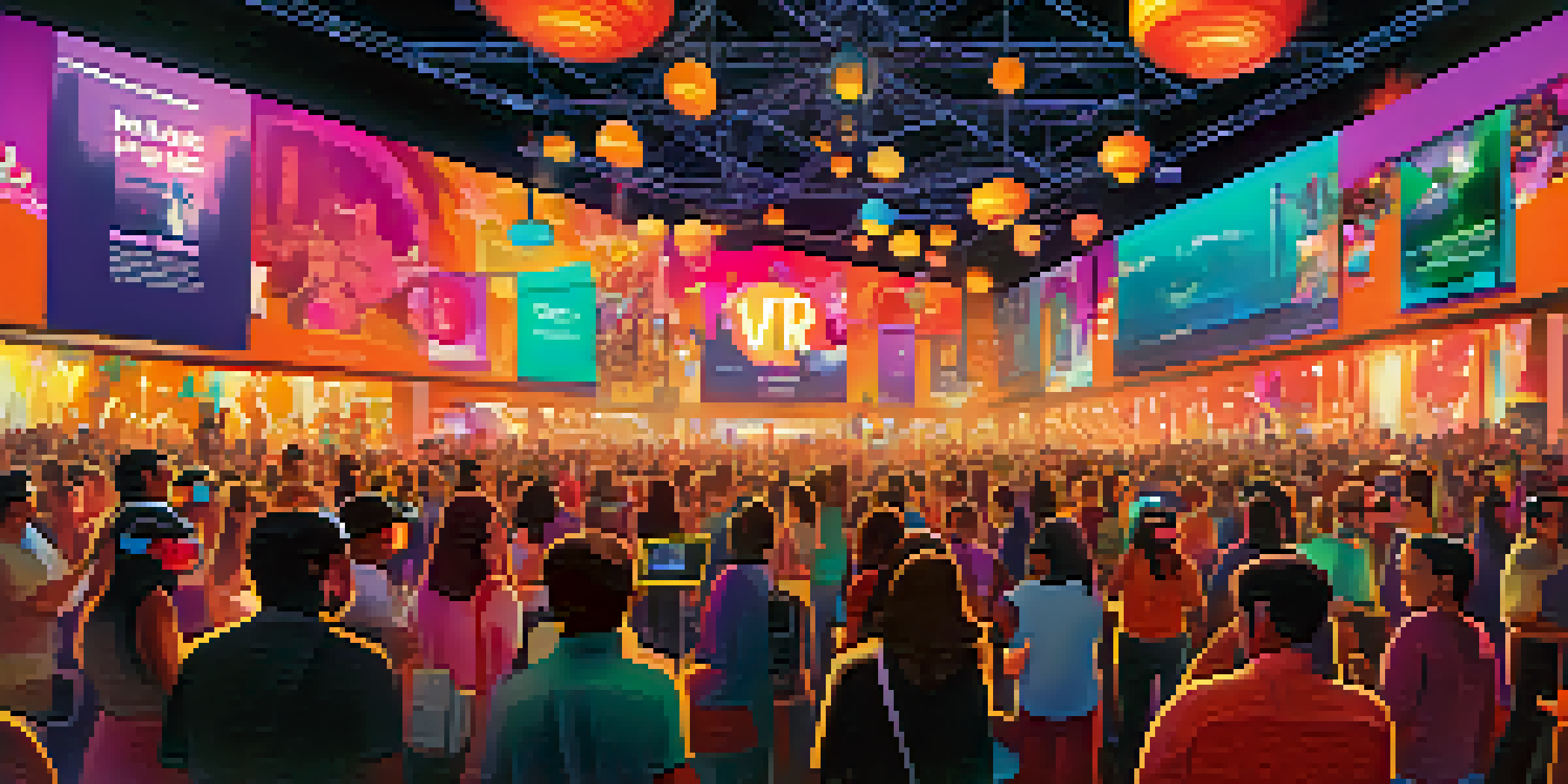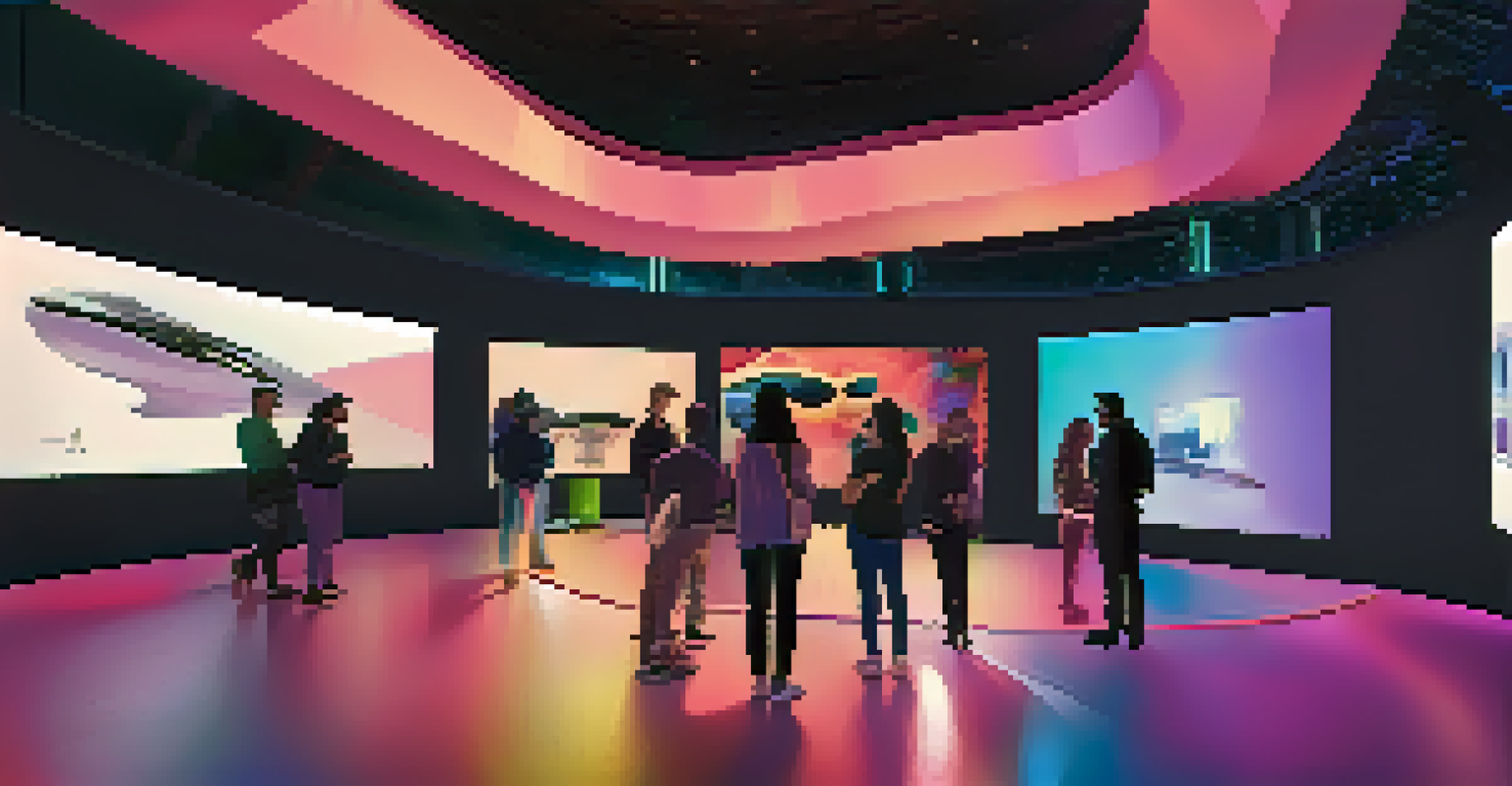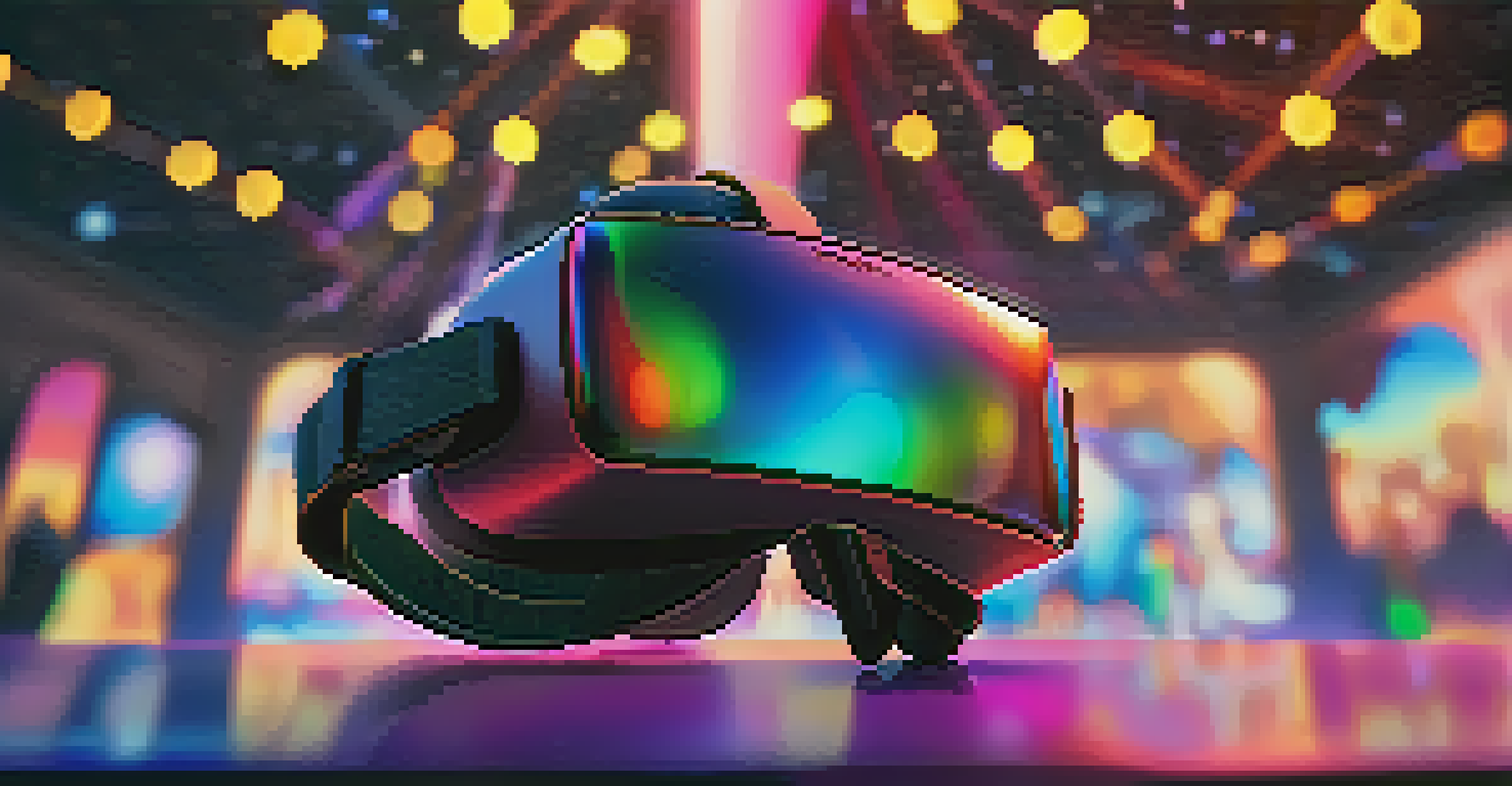Future of Film Festivals: Showcasing VR Experiences in Hollywood

The Rise of VR in the Film Industry
Virtual reality (VR) has rapidly gained traction in various sectors, and the film industry is no exception. It offers immersive experiences that traditional films simply can't match, allowing viewers to step inside a story rather than just watch it unfold. This shift is prompting filmmakers to experiment with VR, creating narratives that engage audiences on a whole new level.
Virtual reality is not just a new medium; it’s a new way of telling stories and engaging audiences.
As technology advances, filmmakers are becoming increasingly adept at harnessing VR to enhance storytelling. For instance, projects like 'The Walking Dead: Onslaught' allow fans to explore the world of their favorite series interactively. This kind of engagement not only attracts a broader audience but also fosters deeper connections with the material.
Moreover, as more creators embrace VR, it's clear that this medium will play a pivotal role in the future of film. Film festivals, as a hub for innovation, are beginning to showcase these unique experiences, opening the door for new narratives and storytelling techniques that can redefine how we perceive cinema.
VR's Impact on Film Festival Programming
Film festivals have traditionally focused on showcasing films, but the inclusion of VR experiences is changing the landscape. This evolution allows festivals to curate diverse programming that attracts tech-savvy audiences eager to immerse themselves in new formats. By featuring VR, festivals can highlight innovative storytelling techniques that challenge conventional filmmaking.

For example, festivals like Sundance and Tribeca have already integrated VR into their lineups, presenting works that blend artistry and technology. These events not only provide a platform for VR creators but also educate attendees about the potential of this medium. Such programming encourages filmmakers to explore and expand their creative horizons.
VR Transforms Film Storytelling
Virtual reality is revolutionizing how stories are told in film, allowing audiences to engage interactively with narratives.
As VR continues to evolve, we can expect more film festivals to follow suit, creating dedicated spaces for immersive experiences. This shift not only enriches the festival atmosphere but also helps cultivate a community that appreciates the intersection of technology and storytelling.
Audience Engagement Through Immersive Experiences
One of the most compelling aspects of VR is its ability to engage audiences in a deeply personal way. Unlike traditional films that present a passive viewing experience, VR invites viewers to become active participants in the narrative. This level of engagement can lead to heightened emotional responses and a more profound connection to the story being told.
The future of storytelling lies in immersive experiences that make audiences feel as if they are part of the narrative.
Imagine watching a documentary about climate change where you can virtually stand in a melting glacier or walk through a bustling city facing rising sea levels. These immersive experiences can leave a lasting imprint, inspiring viewers to take action or rethink their perspectives on important issues. Film festivals can harness this potential to spark meaningful conversations among attendees.
As audience expectations shift, filmmakers must adapt to meet the demand for more interactive content. By weaving VR experiences into their offerings, festivals not only keep audiences engaged but also ensure they remain relevant in a rapidly evolving entertainment landscape.
Challenges of Integrating VR in Film Festivals
While the integration of VR into film festivals offers exciting possibilities, it also presents unique challenges. The technology required for a seamless VR experience can be expensive, and not all festivals have the budget or infrastructure to support it. This can create disparities between festivals, with larger events able to showcase cutting-edge technology while smaller ones may struggle.
Additionally, technical issues can arise during live demonstrations, potentially detracting from the audience's experience. Organizers must invest in training and support to ensure that the technology runs smoothly, which can be a significant undertaking. It's essential for festival planners to consider these factors when deciding to incorporate VR into their programming.
Film Festivals Embrace VR
Many film festivals are integrating VR experiences into their programming, showcasing innovative storytelling techniques and attracting tech-savvy audiences.
Despite these challenges, the potential rewards of offering VR experiences at film festivals are immense. By proactively addressing these hurdles, festivals can create a more inclusive environment that embraces innovation and showcases the best that the film industry has to offer.
The Role of Industry Partnerships in VR Development
Partnerships between film festivals and technology companies can play a crucial role in the successful integration of VR experiences. Collaborations can provide festivals with access to the latest VR technology, ensuring that attendees enjoy high-quality experiences. These partnerships can also lead to the development of new content that showcases the best of what both industries can offer.
For instance, collaborations with VR hardware companies can help festivals set up dedicated spaces for immersive experiences, complete with the necessary equipment and support. This can elevate the festival experience, attracting not only filmmakers but also tech enthusiasts keen to explore the latest innovations in storytelling.
By fostering these partnerships, film festivals can position themselves as leaders in the evolving landscape of entertainment. As VR continues to gain popularity, these collaborations will be essential for ensuring that festivals remain relevant and appealing to diverse audiences.
Future Trends in VR and Film Festivals
Looking ahead, we can expect to see even more exciting trends in the intersection of VR and film festivals. As technology becomes more accessible, a wider range of creators will be able to experiment with VR storytelling. This democratization of technology could lead to a surge of creativity, resulting in unique narratives that challenge existing conventions.
Moreover, advancements in VR technology, such as improved graphics and sensory feedback, will enhance the immersive experience. This will allow filmmakers to push the boundaries of storytelling, creating experiences that captivate audiences in ways previously thought impossible. Film festivals will need to adapt to these changes, continuously evolving to meet the demands of both creators and audiences.
Challenges of VR Integration
While incorporating VR into film festivals offers exciting opportunities, it also presents challenges such as high costs and technical issues.
As VR continues to shape the future of entertainment, film festivals will likely become key players in this transformation. By embracing these trends, festivals can ensure they remain relevant in an ever-changing landscape, fostering a culture of innovation and creativity.
Conclusion: Embracing the Future of Storytelling
The future of film festivals is undoubtedly intertwined with the rise of VR experiences. As filmmakers explore this new medium, audiences are presented with opportunities to engage with stories in unprecedented ways. This shift not only enriches the festival experience but also encourages a broader conversation about the future of storytelling in an increasingly digital world.
By embracing VR, film festivals can showcase the incredible potential of this technology, inviting audiences to participate in narratives that resonate deeply. This evolution can lead to a more vibrant film community, where innovation and creativity are celebrated, and diverse voices are heard.

Ultimately, the integration of VR into film festivals signifies a thrilling new chapter in the world of cinema. As we look forward to what the future holds, one thing is clear: the possibilities for storytelling are limitless, and film festivals will continue to be at the forefront of this exciting journey.